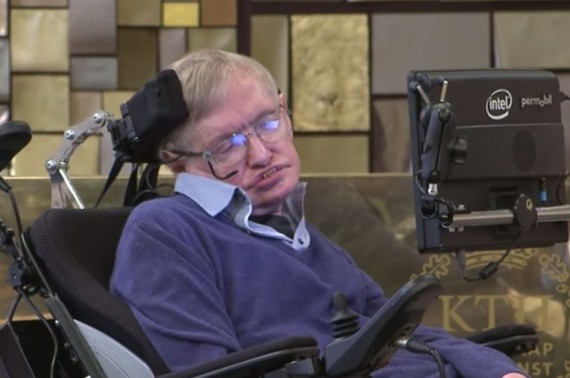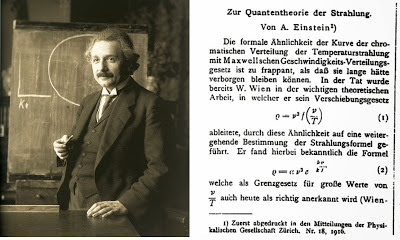It's been 40 years since Stephen Hawking shocked the physics world by claiming that the universe is inherently unpredictable. Now, at a conference in Stockholm where invited luminaries are discussing the impact of Hawking's discovery and possible ways to resolve the contradictions it has wrought, Hawking himself took the stage and announced that he had resolved all those contradictions.
This is not Hawking's first announcement that he solved his own paradox: he had several previous announcements that, in the end, did not convince. I believe the same fate will befall his current attempt.
The paper that created the paradox and put the physics community in turmoil was submitted for publication August 25th, 1975 (but it took a year to be published due to its controversial nature). Hawking argued that the radiation effect that he had just discovered (and that bears his name), leads to the ultimate evaporation of black holes, and violates one of our most cherished laws of physics, namely time-reversal invariance. This law, which states that all microscopic processes can in principle run forwards just as well as backward, implies the predictability of the future (as well as our ability to understand the past).
The contradiction with the laws of physics that Hawking noted was quickly termed the "information paradox", because the loss of predictability can be seen to be a consequence of losing the information that fell into the black hole in the past.
During these last 40 years, physicists have not stood idly by: not a year goes by without a plethora of attempts to resolve the contradiction. Now Hawking announced, during the "Hawking Radiation Conference" at the KTH Royal Institute of Technology in Stockholm that he had figured out how to solve the paradox, and that information is in fact not lost to the universe, just badly scrambled.
Hawking in his talk described a meeting in April of this year, where he had heard fellow theoretical physicist Andrew Strominger (also in attendance in Stockholm) talk about his recent work that showed how gravity waves (the stuff that is emitted in violent astrophysical events such as supernovae) can create a sort of "memory effect." Hawking's idea is that if a black hole absorbs some particles, they will change the location of the black hole horizon, which in turn influences the future Hawking radiation (creating the "memory") because that radiation would look different if nothing had been absorbed.
It is true that the effect described by Strominger and applied to black hole horizons can in principle imprint some information on the outgoing Hawking radiation. But it is unlikely that the effect, which does not take into account the quantum nature of the infalling particles, can resolve the paradox. Indeed, a hefty dose of skepticism emerged immediately after the talk. Dr. Sabine Hossenfelder for example, a theorist at the Nordic Institute of Sciences who is also in attendance wrote: "The only way I can see how this works is that the information was there twice to begin with."
Indeed, the idea that a duplication of quantum information must be at the origin of a solution of the paradox was suggested before, as retold by Leonard Susskind in his book entitled The Black Hole War. There, Susskind recounts the battles he had with Hawking about the paradox, and in particular the idea that everything would be solved if only the black hole horizon was covered with "a lot of tiny invisible copying machines." However, he quickly dismissed the idea himself 15 years ago, because he thought that this would violate another law of physics, namely that quantum information cannot be exactly copied (cloned).
However, it turns out that abandoning this idea was premature, because black holes it seems are after all clothed in a mantle of Xerox machines, albeit imperfect ones. This is implied by an effect that Albert Einstein discovered in 1917, where he showed that any radiation that falls on to a black body stimulates it to emit a copy of the stuff that was absorbed (that is the effect that ultimately gave rise to Lasers).
In a paper that appeared earlier this year, I was able to show that this effect also applies to black holes (as previously argued by the late Jacob Bekenstein, who passed away suddenly just a week ago), and that it does not violate the edict against quantum cloning as the black holes only clone approximately. And I was able to show that this indeed restores the predictability of the universe, as Susskind had surmised.
So, my view is that Hawking did not solve his paradox; in fact I do not think that the paradox even needs resolution anymore, as Einstein's fundamental insights (coupled with Bekenstein's application to black holes) has rendered it moot. But it certainly is admirable that Hawking has persisted in trying to undo the confusion he sowed 40 years ago.

